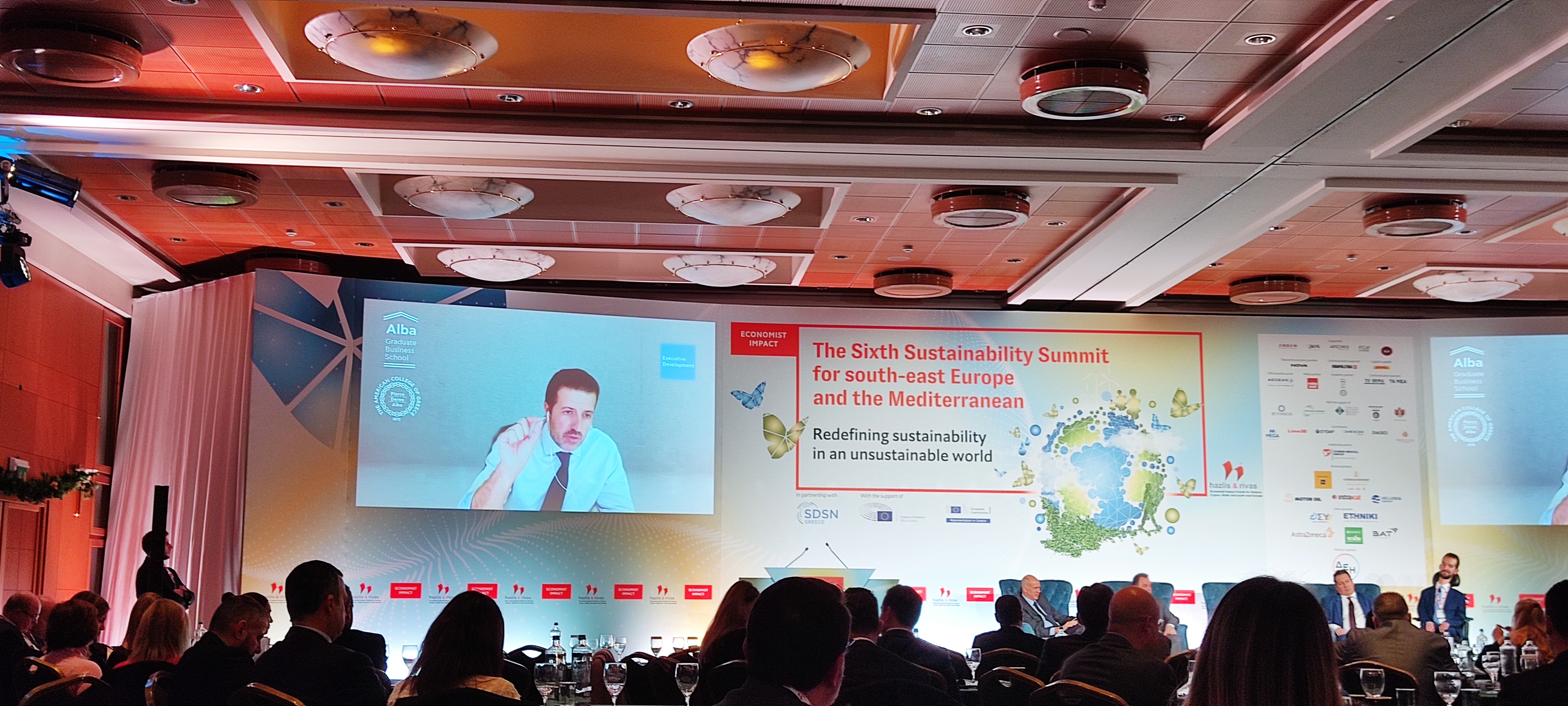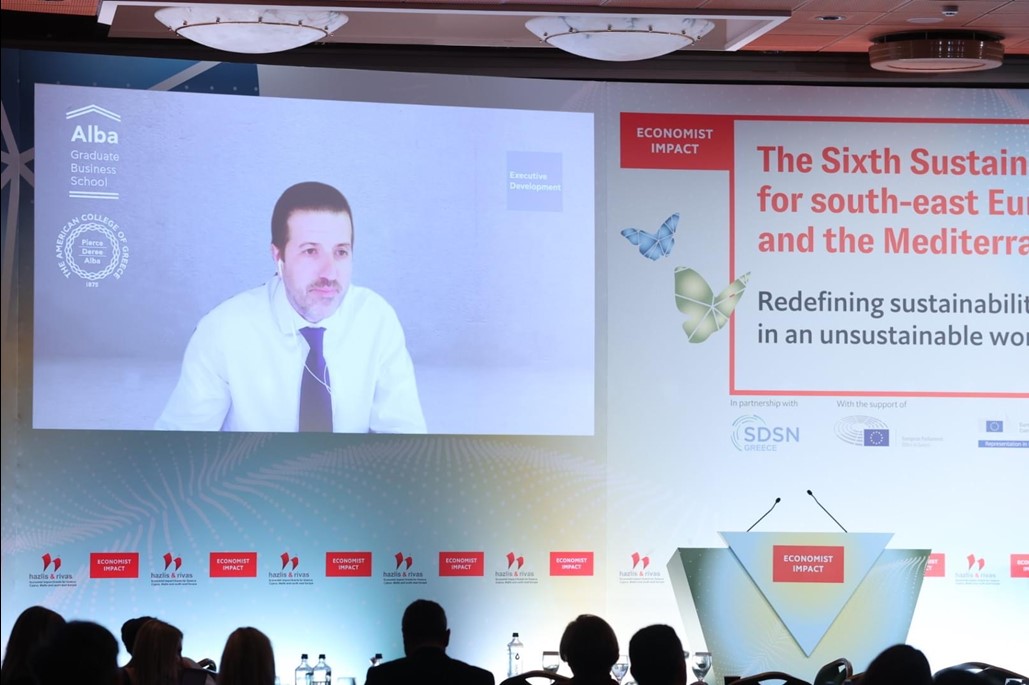Sixth Sustainability Summit for south-east Europe and the Mediterranean - Redefining sustainability in an unsustainable world

On December 1, the Sixth Economist Sustainability Summit for south-east Europe and the Mediterranean took place in Athens. This year’s summit, entitled Redefining sustainability in an unsustainable world, was organized in partnership with SDSN Greece and supported by the European Parliament Office of Greece and the European Commission Representation in Greece. The speakers touched upon several topics that impact sustainability, such as climate crisis, biodiversity loss, poverty and inequality, and addressed current issues, such as the transformation of cities.

Pavlos Vlachos, Associate Professor of Marketing at the Alba Graduate Business School, The American College of Greece and 2nd Theodore Papalexopoulos Chair in Sustainability, was one of the invited panelists for a discussion on “Food Shortage under the Microscope” along with Georgios Georgantas, Greek Minister of Rural Development and Food, Elena Danali, Food and Agriculture Campaigner at Greenpeace Greece, and Stelios Kympouropoulos, Member of the European Parliament
In his opening remarks, Professor Vlachos posed the following: “Do firms in the food system greenwash?” This question has been a hot topic in the area of sustainability for the past few years. According to Professor Vlachos’ research published in the Journal of Management Studies, a Financial Times-listed academic journal: “There is econometrically rigorous evidence that firms greenwash, namely, they do not walk their ESG talk when it comes to circular product design and responsible marketing practices.” Specifically, his findings demonstrate that 7,365 firms in 47 countries have been greenwashing over a 15-year period (from 2002 to 2017).
From his research, Professor Vlachos yielded the following results. Firstly, the sectors that greenwash the most, especially with regard to circular product design, are agriculture, forestry, and fishing. Secondly, he emphasized how greenwashing can affect the market and how the market punishes the firms that apply this strategy. Finally, his findings prove an unexpected and surprising result – “virtuous” firms not only greenwash but are often penalized more than “sinful” firms, such as gambling, weapon, oil, and tobacco. Consumers are greatly affected by greenwashing and “are especially likely to penalize greenwashing when this comes from firms in “clean” or “virtuous” industries (such as food companies).”
Watch our Professors' speech:





